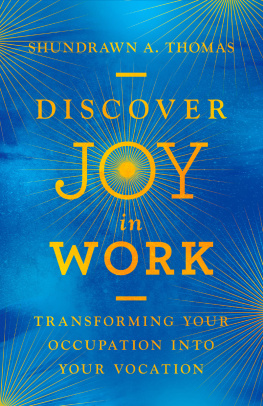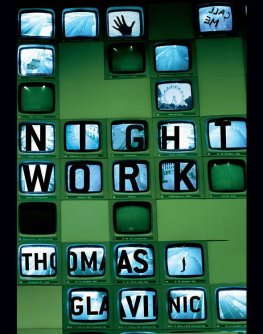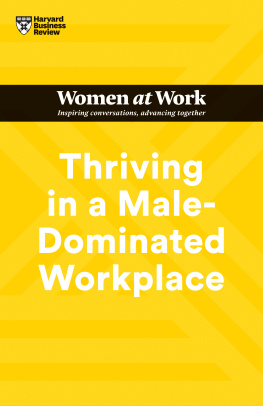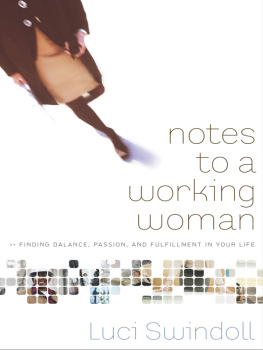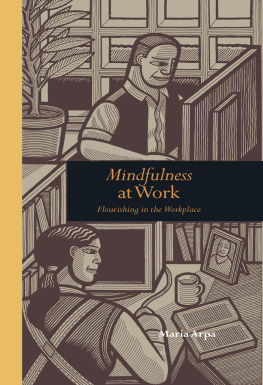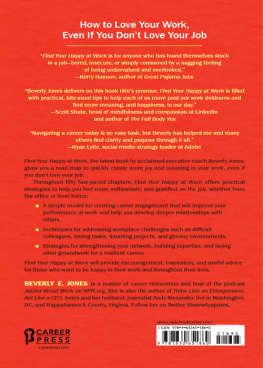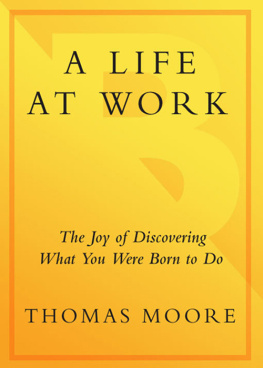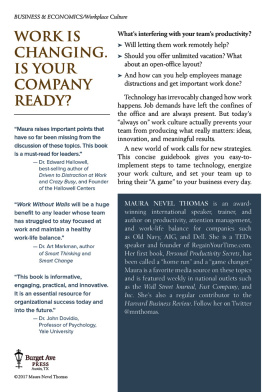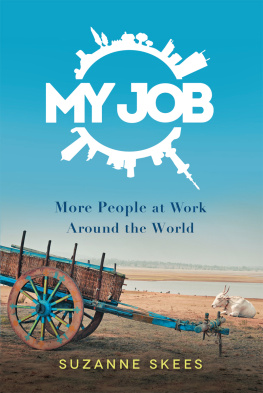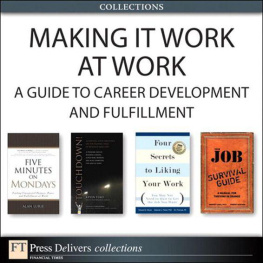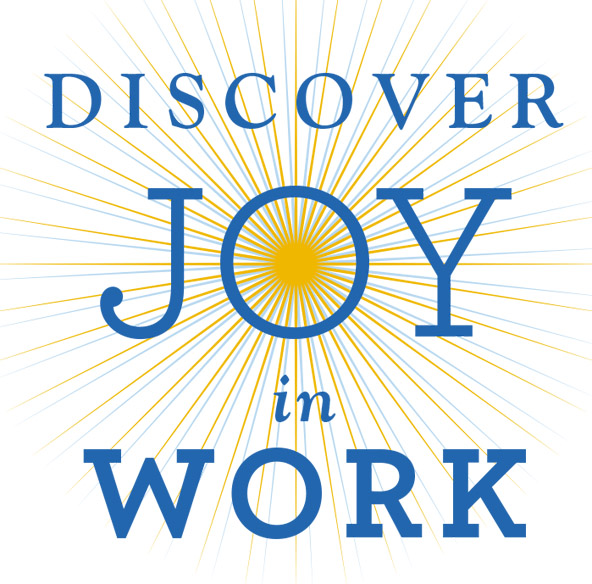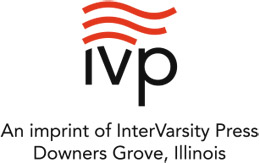Sommaire
Pagination de l'dition papier
Guide
TRANSFORMING YOUR
OCCUPATION INTO
YOUR VOCATION
SHUNDRAWN A. THOMAS
InterVarsity Press
P.O. Box 1400, Downers Grove, IL 60515-1426
ivpress.com
email@ivpress.com
2019 by Shundrawn A. Thomas
All rights reserved. No part of this book may be reproduced in any form without written permission from InterVarsity Press.
InterVarsity Press is the book-publishing division of InterVarsity Christian Fellowship/USA, a movement of students and faculty active on campus at hundreds of universities, colleges, and schools of nursing in the United States of America, and a member movement of the International Fellowship of Evangelical Students. For information about local and regional activities, visit intervarsity.org.
All Scripture quotations, unless otherwise indicated, are taken from The Holy Bible, New International Version, NIV . Copyright 1973, 1978, 1984, 2011 by Biblica, Inc. Used by permission of Zondervan. All rights reserved worldwide. www.zondervan.com. The NIV and New International Version are trademarks registered in the United States Patent and Trademark Office by Biblica, Inc.
While any stories in this book are true, some names and identifying information may have been changed to protect the privacy of individuals.
Cover design and image composite: David Fassett
Interior design: Daniel van Loon
Images: stars: Shin Tukinaga / Moment / Getty Images
flowing water: greenantphoto / iStock / Getty Images Plus
ISBN 978-0-8308-5798-2 (digital)
ISBN 978-0-8308-4574-3 (print)
This digital document has been produced by Nord Compo.
This book is dedicated
to the working world.
PREFACE
WORK AND HAPPINESS
Men for the sake of getting a living forget to live.
MARGARET FULLER
Y ears ago, I was invited to a dinner meeting with a small group of accomplished professionals. This turned out to be the inaugural meeting of a group that would gather for years to come. Among the group of twelve were several corporate executives, several partners from law firms, two leaders in the nonprofit sector, a private equity investor, and an entrepreneur. The group coalesced around the concept of encouraging one another in our personal and professional development. While the members of the group were loosely connected through mutual relationships, the first step on our journey was simply getting acquainted with one another.
We began by sharing basic personal information about our families and ourselves. We then, in a more structured manner, discussed our career experience, current responsibilities, and future aspirations. The final speaker took a very different approach. Raymond was an accomplished artist and a director at a nonprofit organization. Prior to discussing his professional experience and career aspirations, he posed a question to the group. Are you happy? he asked. The words seemed to suspend in silence over the group. Are you happy? he repeated. The simple yet profound question changed the entire tenor of the dialogue.
As the final contributor, Raymond had the unique perspective of hearing from all the other participants. He said he was impressed with the collective experiences and achievements of the group. While it was clear the group was composed of individuals with pedigrees of professional success, it was not altogether clear the individuals found lasting fulfillment in their work. Happiness and workit seemsare strange bedfellows. It was natural for the members to pursue and expect success in their professional pursuits. It was, however, foreign for this same group to seek or expect happiness in their professional experience. Apparently, happiness in work or the workplace is a bonus, not an expectation.
It turns out the question was not only profound but was in some ways prophetic. Over the course of the next two years, half of the group pursued new career opportunities. In each instance, the individual elected to leave a situation where they had enjoyed notable success and reasonably long tenures. Some pursued opportunities more in line with their personal passions while others pursued better career opportunities or entrepreneurial endeavors. While it was never explicitly stated, each move in some way reflected a desire to achieve more professional fulfillment and achievement. What about happiness? Is there joy in work?
The members of our group continue to meet periodically to promote personal and professional development. Those who have made career transitions seem to be faring well professionally. Some or all of these professional transitions may prove beneficial in the long run. However, these career moves alone will not bring more joy. Those who changed jobs testify to the fact they generally found identical or similar challenges in their new workplaces. Our personal experiences revealed a great truth. Joy is something we only find through introspective search. The search for joy in work is more about our attitude and less about our environment.
The greatest inhibitor to experiencing joy in our work is the attitude and actions of the man or woman in the mirror. Where we work is an important question to be sure. Given a choice, one should choose wisely. How we choose to perform our work is, however, the more essential question. Setting aside the human tendency toward self-centeredness is a prerequisite to discovering joy in our work. This requires us to rise above selfish ambition. It also requires us to mature mentally and spiritually, so our true motivation originates from our inner being.
I made an important decision during that first dinner meeting. I decided to transform my occupation into my vocation. This entails daily taking individual accountability for growing personally and professionally. This has been my path to discovering joy in my work. This personal revelation inspired me to write this book. I pray it encourages you to truly live as you get a living. I pray you will similarly transform your occupation into your vocation, and by doing so, find joy in your work.
INTRODUCTION
NO JOY IN MUDVILLE
We are at our very best, and are happiest, when we are fully engaged in work we enjoy on the journey toward the goal we established for ourselves. It gives meaning to our time off and comfort to our sleep. It makes everything else in life so wonderful, so worthwhile.
EARL NIGHTINGALE
T he world has an employee engagement crisis, with serious and potentially lasting repercussions for the global economy. This was the lead to an article published by Gallup, Inc., a preeminent research and consulting company with a stated mission to help leaders and organizations solve their most pressing problems. The company focuses on several key practice areas including talent management and employee engagement. In short, they can help solve people problems. Gallup characterizes engaged employees as those who are enthusiastic about their work and committed to their work and workplace. Gallup has been tracking employee engagement since 2000 with sobering results. According to Gallup, less than one-third of US employees are engaged, with only 13 percent of employees engaged worldwide. Organizations of all shapes and sizes experience this general lack of engagement. It is a particularly acute problem given the intensive efforts to improve engagement over the last decade.

